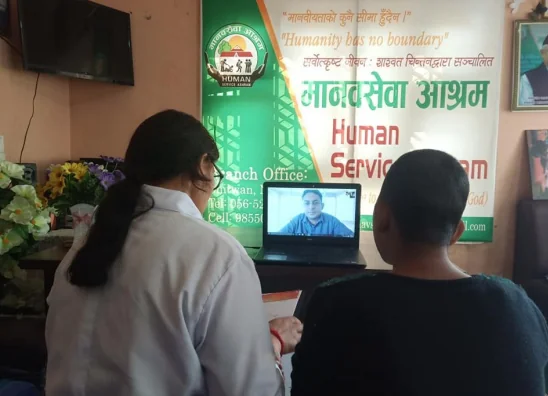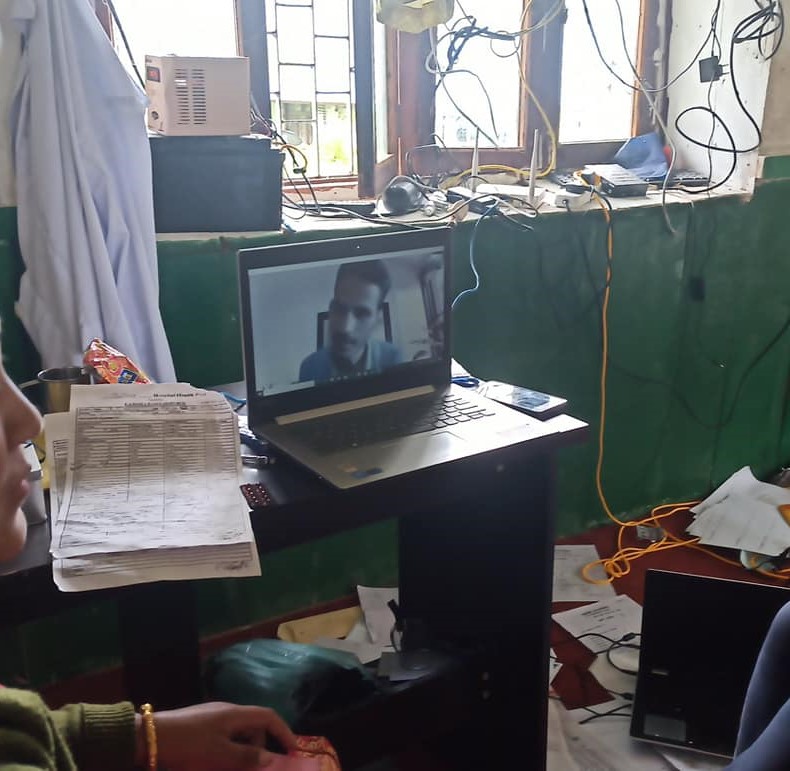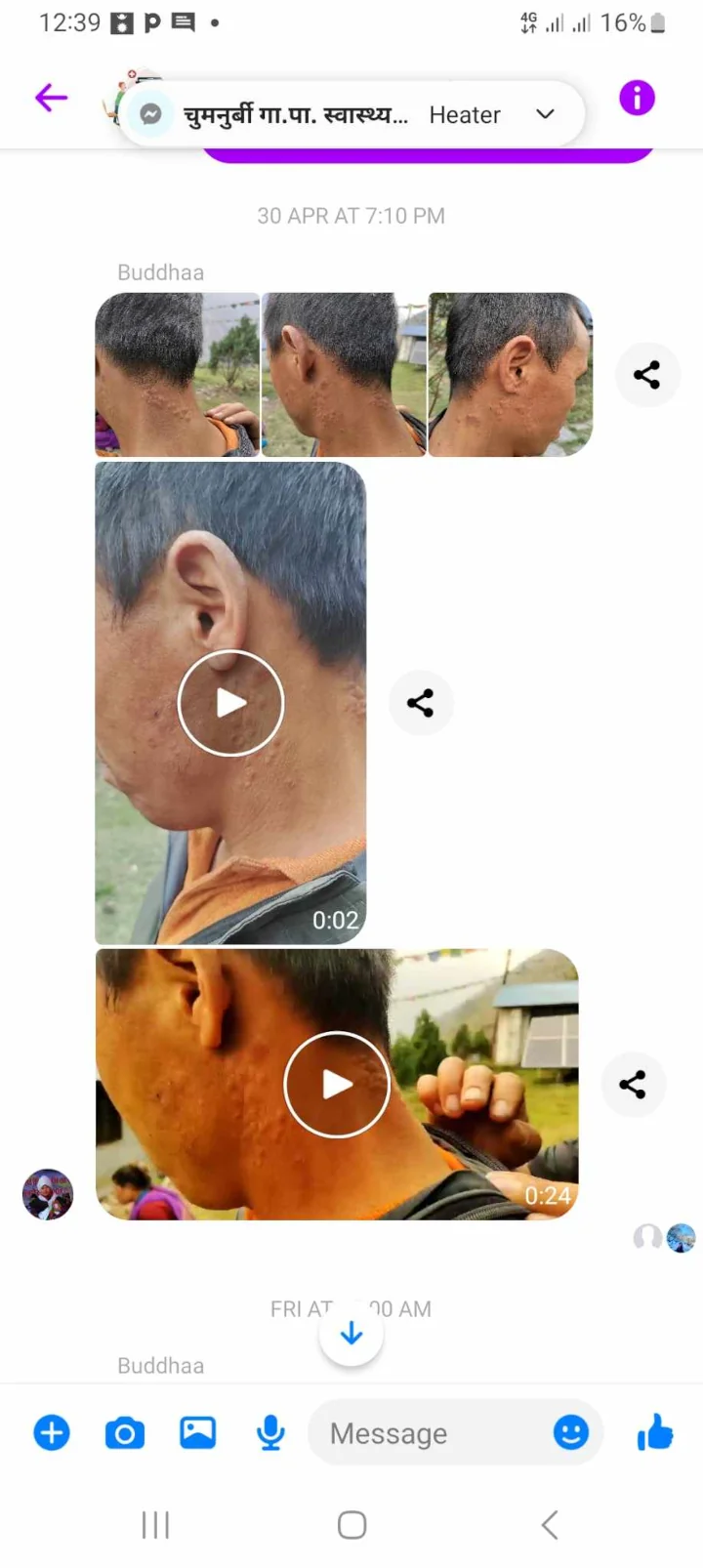Telemedicine
Ask Foundation has been dedicated to community service for a decade, focusing on remote telemedicine and bridging gaps during pandemics, epidemics, and endemics by providing free telemedicine services in both rural and urban areas.
We started general Telemedicine services, initially as HTP Telehealth Innovation Foundation (Later, registered as Ask Foundation in the year 2016), in different remote parts of Nepal.
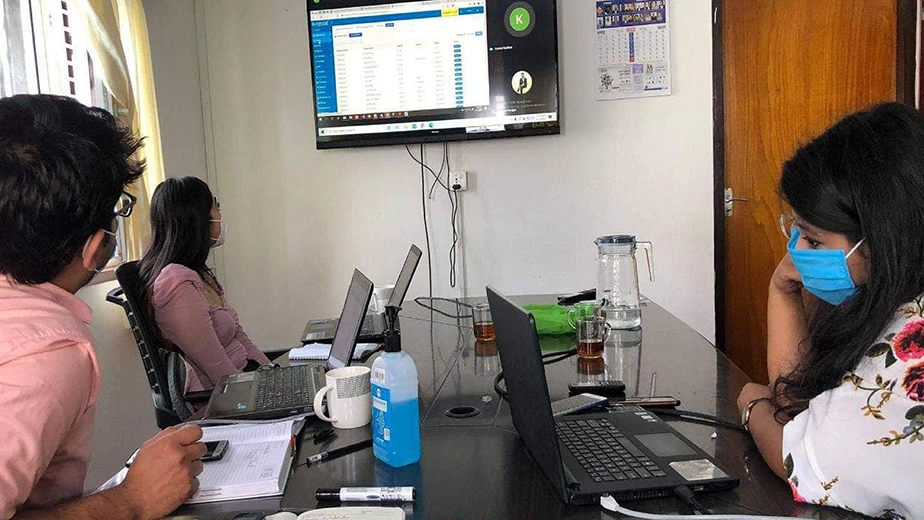
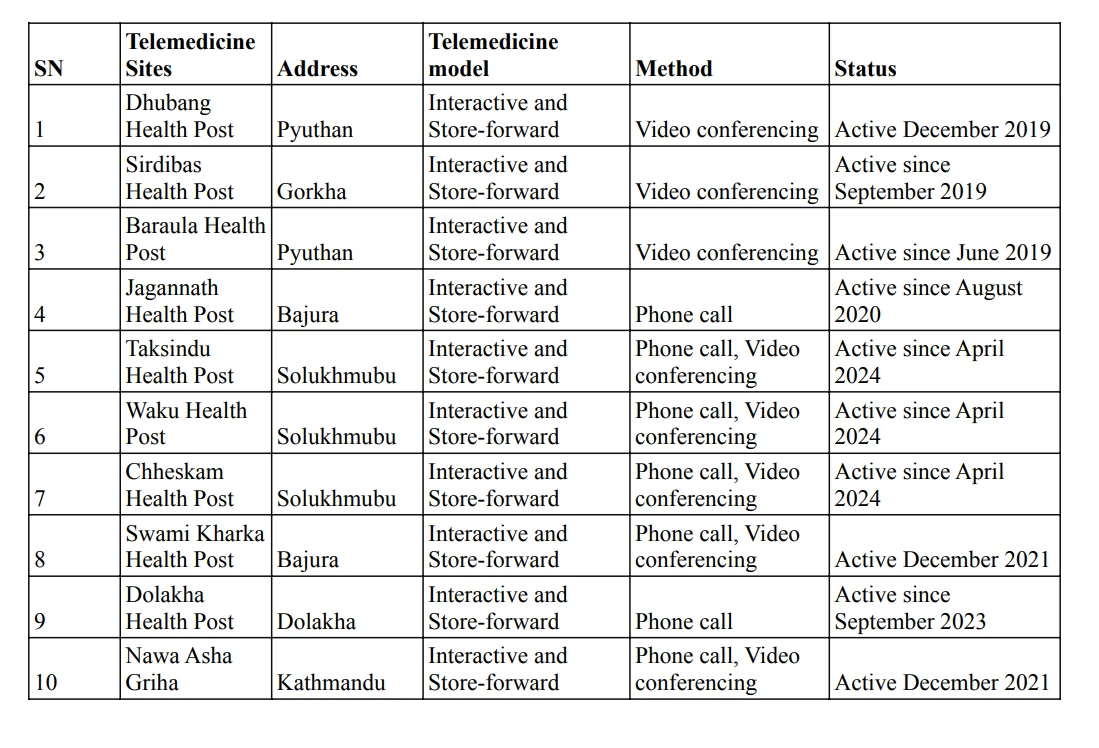
Number of active telemedicine centers: 7 Location and Name:
- Waku- Solukhumbhu
- Taksindu- Solukhumbhu
- Chheskam- Solukhumbhu
- Sirdibas- Gorkha
- Jagannath- Bajura
- Dhubang- Pyuthan
- Tokha- NAG
Updated on July, 2024
Additional Centers from Action For Nepal (AFN):
Ask Foundation has added three more centers as part of its regular telemedicine services to support local healthcare providers:
Taksindu Health Post, Chheskam Health Post, Waku Health Post
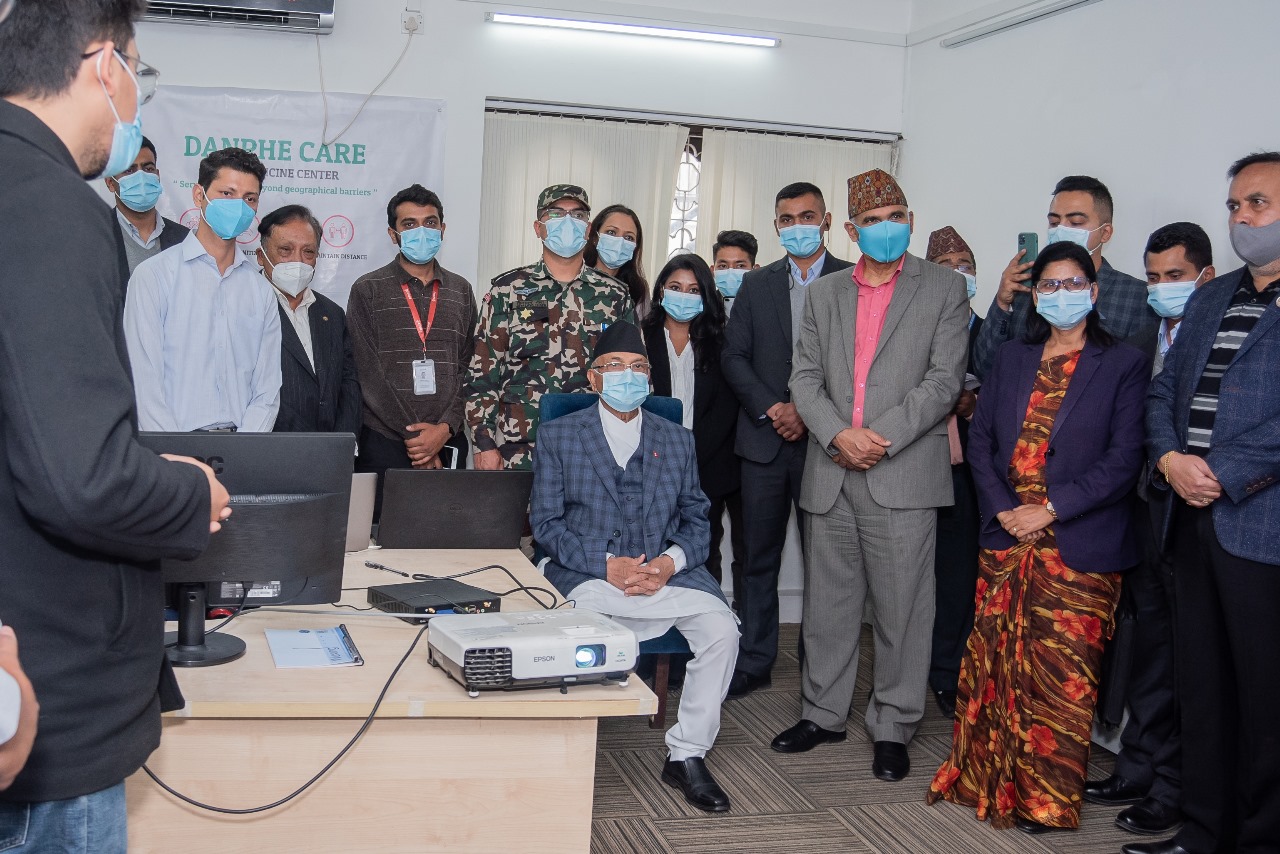 Demonstration of how Telemedicine can help to connect the rural patients and solve the case to then PM KP Oil and other officials
Demonstration of how Telemedicine can help to connect the rural patients and solve the case to then PM KP Oil and other officials
Telemedicine in Kalikot
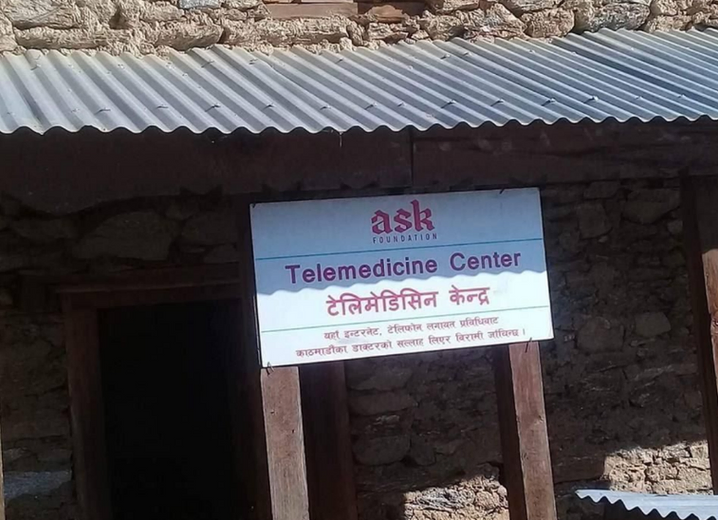
The Journey of Sipkhana Telemedicine Center
In the remote region of Sipkhana, Kalikot, the ASK Foundation established a telemedicine center with the aim of improving healthcare access for local communities. Under the guidance of Mr. Hansraj Neupane, a dedicated local health worker, the center quickly became a vital resource for the area. The ASK Foundation provided essential support, including internet connectivity, payment for monthly bills, and recruitment of a lab technician. While the foundation assisted with setting up basic lab facilities, consumables were not provided. Weekly telemedicine sessions were conducted with a medical officer based in Kathmandu, serving 4-5 patients each week with basic lab services and consultations .The center emerged as one of the most efficiently run facilities due to the unwavering support from the ASK Foundation. This support made a significant impact on health service delivery in the region. However, the opening of a new government health post nearby reduced the patient load at the telemedicine center. Recognizing the continued need for comprehensive healthcare, the ASK Foundation also helped establish a community hospital in the vicinity, with details on future plans included in the report .From March 2018 to September 2019, the telemedicine service in Kalikot catered to a diverse group of 209 patients, with a gender distribution of 92 males and 117 females. The majority of patients were between 16 and 40 years old, though the service reached individuals across all age groups. Common health issues included fever, wounds, pneumonia, gastritis, and undiagnosed conditions .The lab service provided at the center from March 2018 to September 2019 served 278 patients, with 174 females and 104 males. The age distribution showed a high demand among those aged 16-30. The center recorded varying patient numbers each year, with a peak in 2075, and conducted several common tests, including pregnancy tests, blood sugar tests, and Widal tests .Overall, the Sipkhana telemedicine center not only provided essential medical services but also adapted to changing local healthcare dynamics, making a lasting impact on the community’s well-being.
Established in 2009, four medical graduates, a philanthropist, an engineer, collaborated with Rural Welfare Council, Kalikot district and assisted in setting up and strengthening Kalikot Clinic. We successfully provided telemedicine services for 5000 patients free of cost in a span of 5 years. Our support to the Kalikot clinic was as follows:
1\. Internet provision and monthly payment of the internet bills.
2\. Lab technician recruited and paid by the ASK foundation.
3\. Basic lab setup was helped by the ASK foundation, but the consumable has not been provided. Now sustains its work independently.
4\. Weekly Telemedicine sessions run via Kathmandu by a Medical Officer.
The center provides lab tests services for Complete Blood Counts, Widal’s test, Bilirubin, Urine Routine, Urine Pregnancy test and Blood Grouping. The hired Lab technician has made a tremendous impact and the local community has benefited by this. The lab services are used in cases which are referred by nearby places and receive services even without telemedicine support.
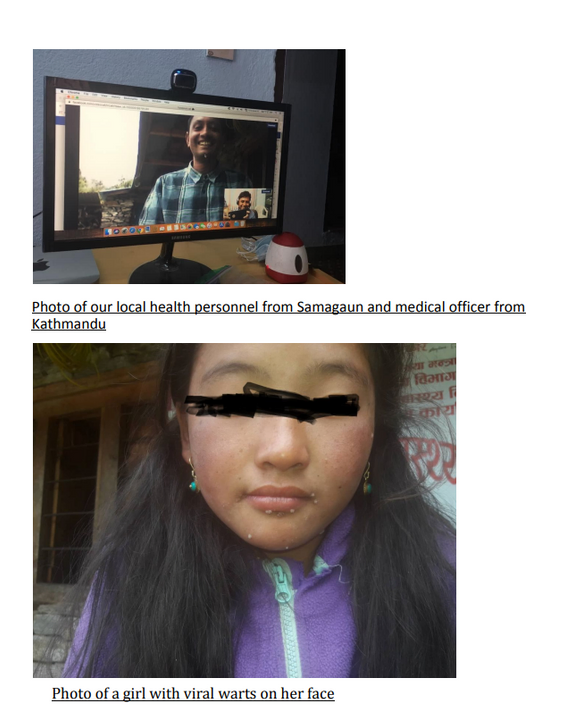
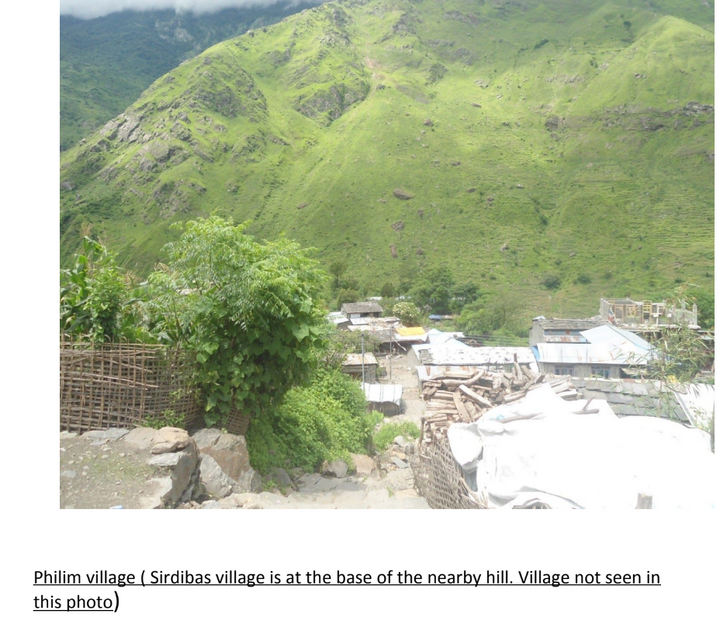
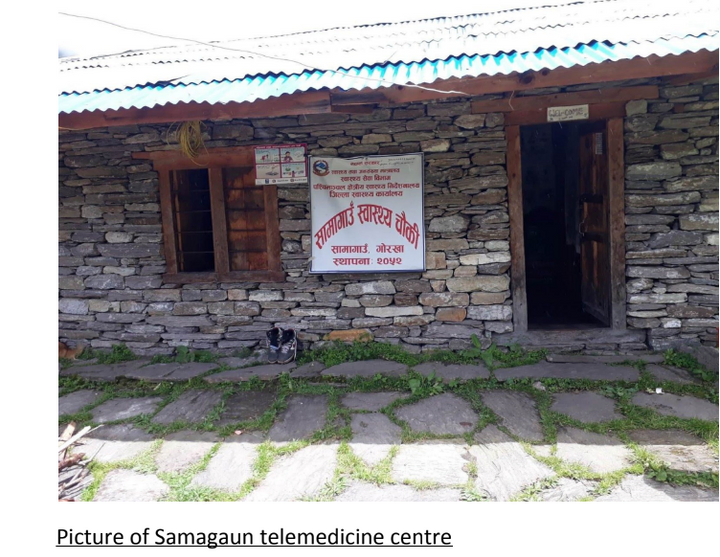
RASKOT, KALIKOT
In Raskot, Kalikot, the ASK Foundation’s continuous telemedicine services, along with timely health camps, significantly mobilized the community. The foundation, with support from the newly elected local governing body and renowned Nepalese journalist Mr. Rabi Lamichhane, led a campaign to establish a Community Hospital in Kalikot.
- Community Hospital Development:
- The hospital began operations in April 2019, using a building rented from the municipality.
- Construction of a dedicated hospital building on municipal land commenced.
- The ASK Foundation took full responsibility for the complete digitalization of the hospital.
This marked the first instance of ASK Foundation extending its telemedicine services to a hospital level. The initial feasibility report indicated positive outcomes, presenting a significant opportunity for upgrading services and expanding the organization’s impact in the region.
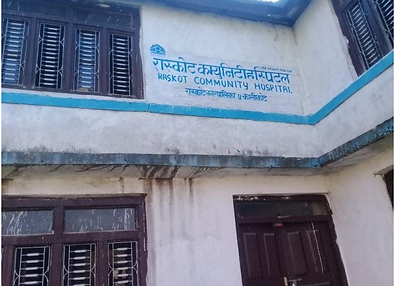
PYUTHAN, AIRAWATI
ASK Foundation expanded its telemedicine network with the support of partners and private donors. The project in this area began in June, spearheaded by Mr. Suvash Shah, a native residing in the USA, who personally donated $1000 to establish telemedicine services in his hometown. The launch saw significant enthusiasm from local residents and youth, with services based at a government health post. Mr. Balgopal Shrestha, a local health personnel, played a crucial role in maintaining the service continuity. From June to September, the telemedicine center treated 136 patients, comprising 97 females and 39 males, with common complaints including back pain, epigastric pain, knee pain, fever, and vaginal discharge. Approximately 7-8 patients were seen per session by medical officers, and basic lab investigations were available. The integration of telemedicine and lab services contributed to the sustainability and continuity of healthcare in the region.
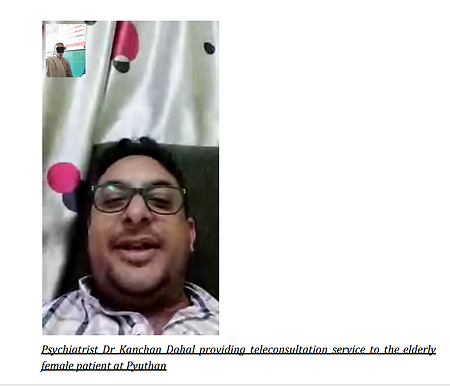
UPPER DOLPO
This remote part of Nepal where ASK foundation’s telemedicine has already started, has other sites in the areas which also are in dire need of Telemedicine services. Despite having little to no basic infrastructure available to start Telemedicine services there, a lot of communities have enquired about these services. This remote area has nearly half of the population immigrating temporarily to Kathmandu, the capital city of Nepal during winters due to harsh climate. ASK foundation has been in touch with the local community and in coordination with various small NGOs in this region- have participated in a free health camp in January 2019 in Kathmandu. ASK foundation has been meeting with various NGOs in this region to discuss the health care demands in this region and consensus seems to point towards the need of TELEMEDICINE for basic health care. Major constraints here are- lack of reliable internet connection and also lack of well-trained Health Personnel.
Api Himal telemedicine centre , Darchula
This remote part of Nepal where ASK foundation’s telemedicine has already started, has other sites in the areas which also are in dire need of Telemedicine services. Despite having little to no basic infrastructure available to start Telemedicine services there, a lot of communities have enquired about these services. This remote area has nearly half of the population immigrating temporarily to Kathmandu, the capital city of Nepal during winters due to harsh climate. ASK foundation has been in touch with the local community and in coordination with various small NGOs in this region- have participated in a free health camp in January 2019 in Kathmandu. ASK foundation has been meeting with various NGOs in this region to discuss the health care demands in this region and consensus seems to point towards the need of TELEMEDICINE for basic health care. Major constraints here are- lack of reliable internet connection and also lack of well-trained Health Personnel.
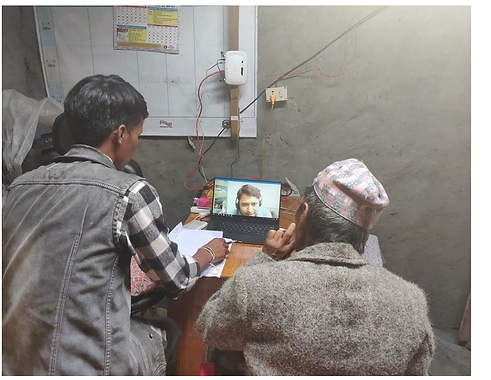
Psychiatric Specialist telemedicine service at Manavsewa Ashram , a rescue and shelter home for homeless and mentally disabled people, on Jan 31st, 2019
